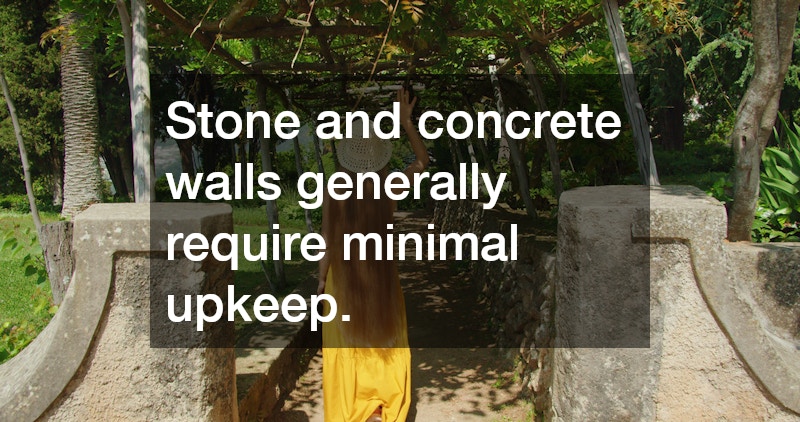Retaining walls are not only functional—they help manage soil erosion, level uneven terrain, and protect your property—but they can also enhance your landscape’s aesthetic appeal. Whether you’re adding a small garden wall or a large structural barrier, the right construction and design are critical for durability and safety. Hiring skilled retaining wall contractors ensures that your project is completed efficiently, meets local regulations, and stands the test of time.
This guide provides homeowners with practical tips for selecting the right professionals, planning effectively, and achieving a retaining wall that balances function and beauty.
Assess Your Needs and Goals
Before reaching out to retaining wall contractors, it’s important to clearly define your project goals. Ask yourself why you need a retaining wall and what you hope to achieve.
Are you trying to prevent soil erosion, create a level patio area, or add visual appeal to your yard? Understanding the purpose will help guide design decisions, materials, and the wall’s dimensions.
Measure your space carefully and consider the slope of your land. Steeper inclines often require taller walls with reinforced materials, while gentler slopes may only need decorative or low-maintenance solutions. Additionally, think about drainage and water management, as retaining walls must allow proper runoff to avoid structural damage over time.
Having a clear vision of your project helps retainers quote accurately and ensures the final result aligns with your expectations. It also allows contractors to recommend materials, construction methods, and reinforcements tailored to your specific property.
Research Materials and Design Options
Retaining walls come in a wide range of materials, each offering different benefits and visual appeal. Concrete blocks are durable and versatile, ideal for taller or load-bearing walls. Natural stone provides a timeless, elegant look but can require more labor and maintenance. Timber walls are easier to install and cost-effective, though they may not last as long in harsh climates.
Design options are equally important. Some walls are purely functional, while others integrate landscaping elements such as built-in planters, steps, or terraces. Color, texture, and layout all play a role in how the wall complements your property.
Discuss material and design preferences with your retaining wall contractors. Experienced professionals can suggest combinations that balance strength, longevity, and aesthetics. They can also provide insight into local soil conditions, which often dictate the type of foundation or drainage system needed for long-term stability.
Evaluate Contractors and Their Experience
Choosing the right retaining wall contractors is one of the most critical steps in ensuring your project’s success. Look for professionals with a proven track record in both residential and structural wall projects. Check portfolios, read reviews, and ask for references from previous clients to get a sense of workmanship and reliability.
Verify licensing and insurance coverage. A properly licensed contractor adheres to local building codes and safety regulations, while insurance protects both you and the workers in case of accidents or property damage.
Communication skills also matter. A contractor who listens to your ideas, explains the construction process, and provides clear timelines is more likely to deliver a smooth, hassle-free experience. Asking questions about challenges they’ve encountered in past projects can also give you confidence in their problem-solving abilities.
Evaluating contractors carefully helps you avoid delays, poor-quality work, or costly mistakes. By choosing experienced professionals, you can feel confident that your retaining wall will be both functional and visually appealing.
Understand Costs and Maintenance Requirements
A retaining wall is a long-term investment, so understanding both upfront costs and ongoing maintenance is essential. Ask contractors for detailed estimates that include materials, labor, excavation, drainage solutions, and any additional fees. Avoid quotes that seem unusually low, as they may indicate subpar materials or hidden costs.
Maintenance considerations vary depending on materials and wall height. Stone and concrete walls generally require minimal upkeep, while timber walls may need sealing or occasional replacement of weathered boards. Proper drainage, including weep holes or gravel backfill, prevents water buildup and extends the life of the wall.
Discussing these factors with retaining wall contractors upfront allows you to plan for future expenses and prevents surprises after the project is completed. Long-term care and attention to proper construction techniques ensure your retaining wall remains structurally sound for decades.
A retaining wall is a practical and aesthetic addition to any property, but its success depends heavily on careful planning, quality materials, and skilled construction. By assessing your needs, researching materials, evaluating contractor experience, and understanding costs and maintenance requirements, you can approach your project with confidence.
Hiring the right retaining wall contractors transforms your ideas into a durable, visually appealing feature that enhances your landscape while protecting your property from erosion and instability. With preparation, professional guidance, and attention to detail, you can enjoy a beautiful, functional retaining wall that adds value and longevity to your home.

